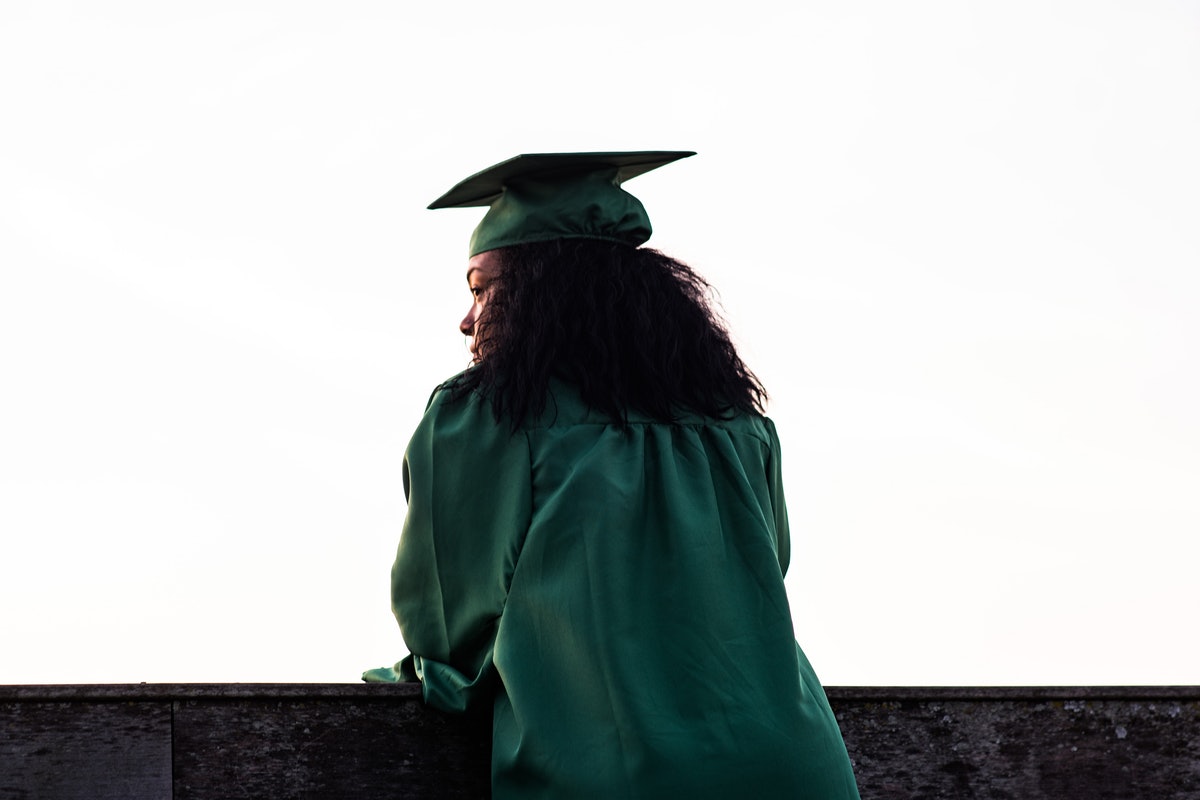On Twitter, Black Scientists Call Out Racism In Academia
Using #BlackInTheIvory, Black scientists speak out on the pervasive racism in academia by sharing their experiences with repeated microaggressions, gaslighting, and physical threats.
This article by Cassie Freund was originally published on Massive Science.

Academia, including the sciences, is rife with racism. This is not news to Black professors, researchers, and graduate students, who are often reluctant to share their stories because of potential backlash and retaliation from their superiors and peers. But Shardé Davis of the University of Connecticut and Joy Melody Woods, a PhD student at the University of Texas-Austin have changed that, by starting a Twitter conversation using the hashtag #BlackInTheIvory.
@smileitsjoy and I are seeing so many Black truthtellers speak on their confrontations with racism in the university setting—student athletes, grads, faculty, etc.. Imma start using #BlackintheIvory to speak on mine….
— Shardé M. Davis, Ph.D. (@DrShardeDavis) June 7, 2020
Black scientists have been posting about their experiences, which range from repeated microaggressions to physical threats. One common theme is of White academics not believing that Black scientists are who they say they are. Another is of White faculty telling Black students that they won’t be successful in their chosen field/program. A third is Black academics being prominently featured in university brochures and “diversity and inclusion” media, but never recognized otherwise. But this summary can’t do the range of stories justice—go read them for yourself.
A former senior prof asked me to stay after faculty meeting, when others left he said he had seen a documentary “about Black women sewing on other peoples hair” and he yanked mine and said, “is this real” #BlackintheIvory
— Dr. Jessica L Ware Lab 🏳️🌈🇨🇦🇺🇸 (@JessicaLWareLab) June 7, 2020
#BlackintheIvory Campus Police would follow black male grad students around campus. When they graduated to physically accosting us we complained. the dean of the med school said maybe we should wear ties so they’d know we were students and not custodial staff.
— Marc (@triniscienceman) June 8, 2020
Being black in academia is constantly seeing people who’ve excluded you promoting themselves as leaders in inclusion and diversity. It’s watching people use the success you achieved in spite of them as evidence that they support black people. #BlackintheIvory
— 🔥Kareem Carr🔥 (@kareem_carr) June 8, 2020
An important point that many Black scholars have made in addition to these stories is that they are just the ones that people feel safe sharing publicly, and they don’t include stories from Black people who were pushed out of academia before reaching the “ivory tower.” There are countless others that are more horrifying that will remain untold. And the sheer volume of stories drives home the point that this is a systemic problem that should not be swept under the rug as isolated instances or just the viewpoints of a few old, White men who should get a pass because they are “from another time” (to be clear, they should not).
#BlackintheIvory Feeling dread every time you have to ask a prof to re-explain something out of fear of being looked at like you’re dumb or being met with “maybe this isn’t the right field for you” while your peers receive enthusiastic responses for asking the same questions.
— Micah Johnson (@jomicah24) June 8, 2020
Being #BlackintheIvory is being told by senior WW Professor “of course NSF would fund your CAREER award, you are a black woman.”
… in one fell swoop invalidating my hard work, expertise, position in the academy, and recognition that I earned.— Asmeret Asefaw Berhe👩🏽🔬🌍🏔 (@aaberhe) June 8, 2020
Davis was shocked that the hashtag that she had started became such a sensation, but she wasn’t surprised at the volume of stories that Black academics had bottled up. “White academics need to know that we [Black academics] are hurt. And that intention doesn’t matter. What matters is the impact of their behavior… I’m not shocked by the volume of responses to #BlackInTheIvory because these are the stories that we often share in Black-only spaces. The current socio-political climate emboldened Black academics to speak their truth and Joy and I simply created the space,” she said to me in an interview.
I asked her if she was hopeful that things would change now that such a strong spotlight has been shined on anti-Black academic racism. “I have some hope. I think that there are a number of White academics, university presidents, deans, provosts, and the like who are getting it in a way that they haven’t before. Prior to this moment in time, many White academics knew that racism existed; they knew that Black folks could experience racial macro and microaggressions, but I don’t think those academics thought that it could be them causing the harm. I think some, (not all) but some were oblivious to their complicity in perpetuating anti-Black racism in the academy.”
But there is a limit to her hope: “Are we going to move from White folks understanding it to White folks leveraging their privilege to enact structural change and bringing Black academics along, and compensating us for our time as we work with the university to make that structural change? That part, I don’t know. Time will tell if folks do what they are supposed to do to make structural change in a way that is appropriate. Meaning, we [Black academics] don’t need people making decisions on our behalf. We need our White colleagues to leverage their racial privilege to draw attention to these issues and to ensure that we are integrally involved when those conversations occur and decisions are made.”
Cassie Freund is an editor for Massive Science, and a tropical forest ecologist and Ph.D. student at Wake Forest University.